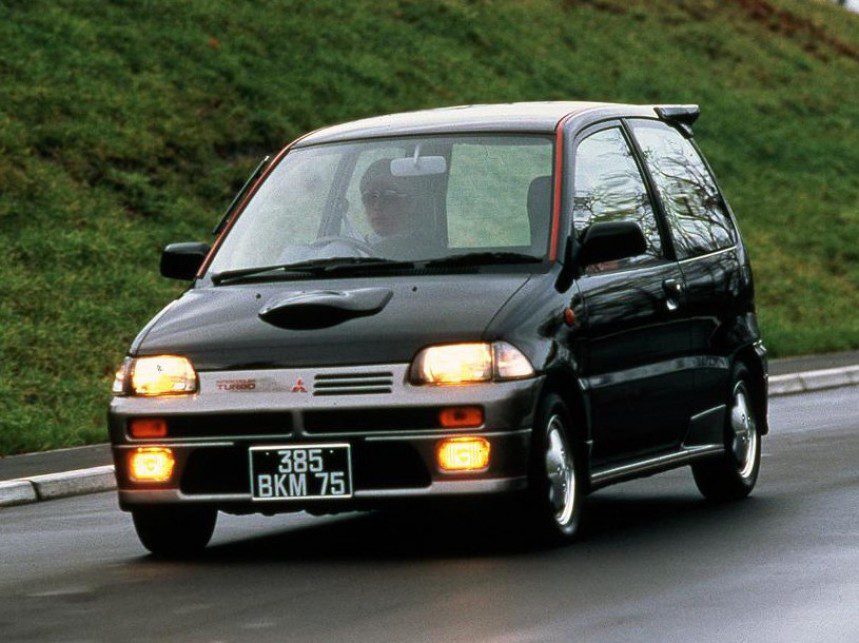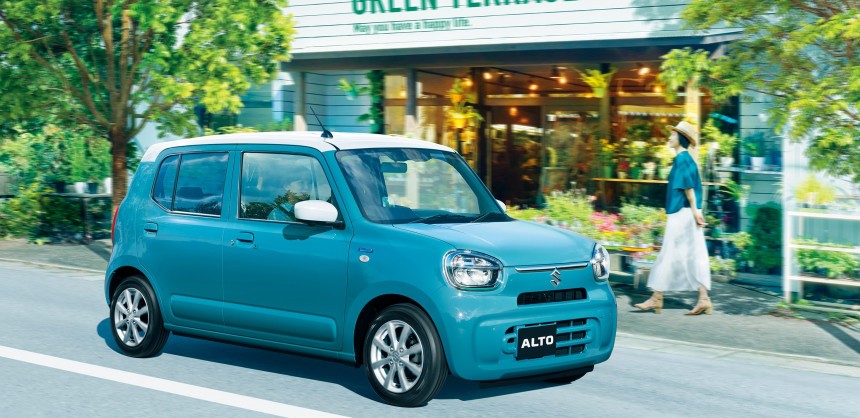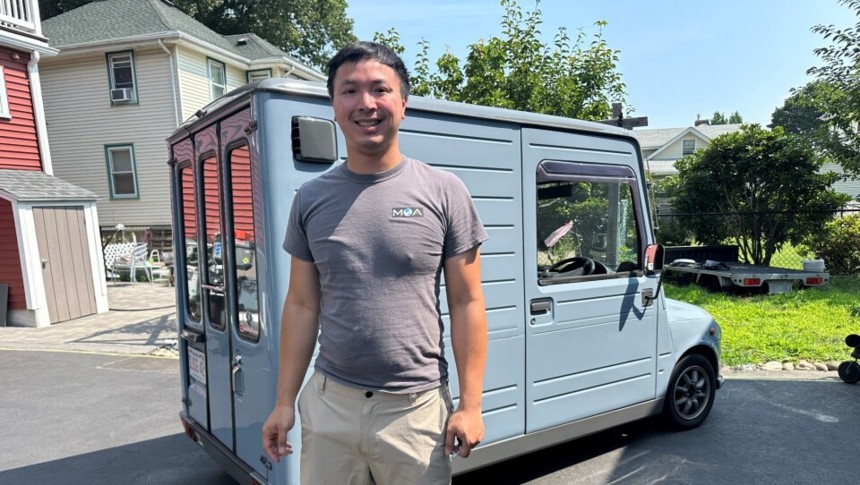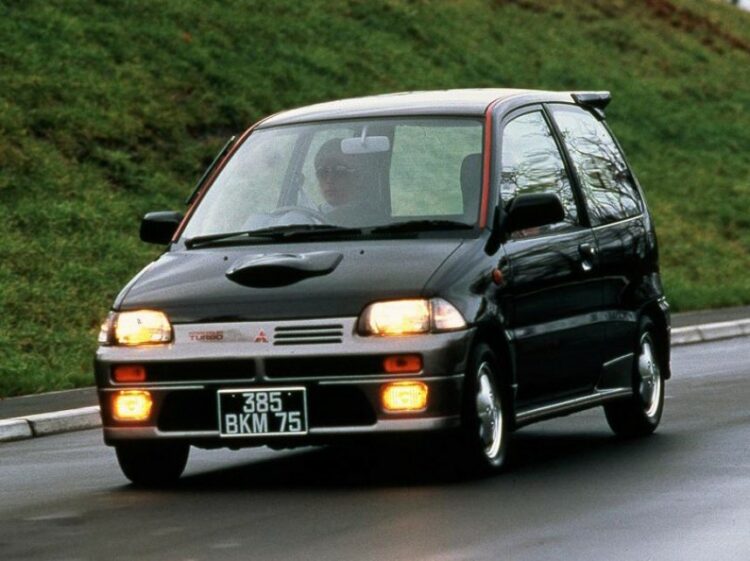There aren’t too many ways to get around the entry price of a reliable used car these days. Even the really cheap stuff costs enough to put money down on a house. But one of the most ironclad solutions in the 21st century came not from a domestic automaker but from ones in Japan. That was, at least, until Big Brother Massachusetts stepped in. In doing so, they’ve just had their mask-off moment.
When the big wigs in Boston at the Registry of Motor Vehicles notified current and prospective owners of Japanese “keijidosha,” or kei cars, that they’d no longer provide registrations for this tiny and efficient class of vehicles, regardless of whether they were 25 years old or not, we car enthusiasts something smelled fishy. But little did even those in the know realize how far the rabbit hole went. Here’s a little recap for those who haven’t followed.
The hammer first fell on the heads of Massechutian car enthusiasts back in July of this year when one Massachusetts RMV branch denied one man by the name of Peter Ferraro a registration number for his R-34 Nissan GTR. A car no one in their right mind would call a small car, let alone a kei car. Bewilderingly, the fine print in the paperwork claimed that the National Highway Traffic and Safety Administration deemed Ferraro’s car was legally “mainly for off-road use.” Yeah, not exactly observant on the part of the RMV. Did they even look at the thing before they handed out that verdict?
Regardless, it was just the start of the headaches for owners of import vehicles, usually from Japan, but not always, who had the gall to own their vehicles in perhaps the most “character-filled” of America’s four commonwealths, to put it lightly. While kei car owners within Massechusettes’ borders prepped their Daihatsu Hijets, Subaru Sanbars, and Suzuki Jimnys for summer road trips, letters in the mail from the Massechusettes RMV that not only would their kei vehicle not receive pending registration tags, but existing ones were at risk of being revoked.
Of course, the response to this aggression by the RMV sent panic through owners from the Rhode Island to New York borders. Would their existing registrations be revoked without warning, leading to fines and possibly even being arrested if pulled over by a particularly agressive highway patrol officer? Would a tow truck show up to bring these innocent little trucks to the crusher? Catastrophizing as it might sound, you can never be too comfortable when overzealous state governments get involved.

Photo: Mitsubishi
Suddenly, vehicles with VIN numbers lower than the standard 17 issued to new vehicles in the United States since 1981 could theoretically become fodder for the RMV to revoke the registration, seemingly without warning, and with great consequence to folks who dropped real cash on bringing their kei car back home in the state. People like Raymond Moy, an eccentric Kei Car enthusiast from the suburbs of Boston whose escapades in his Autozam AZ-1 micro sports car and Daihatsu Mira delivery van are detailed on his YouTube and Instagram pages.
As detailed in a report by the local Boston outlet of CBS News, Moy detailed how he had no less than three kei vehicles on order from Japan when he was served with papers in the mail from the RMV, stating his beloved microcars wouldn’t be road worthy any longer. And what possible reason could the Mass RMV have for banning kei cars from legal road use? Per the report from CBS Boston, the only evidence is one recent report from a supposed “non-profit” organization we can almost assure you’ve never heard of before, the American Association of Motor Vehicle Administrators. Man, is that a mouthful of a name!
In short, the AAMVA recommended in no uncertain terms that kei cars were unsafe for road use in America and should be banned from all American DMV registrations with immediate effect. Besides Massachusetts, similar actions have been attempted in states like Rhode Island and Pennsylvania, among others, causing canceled sales and general anguish wherever they went. But at least this time around, the Kei-enthusiast communities hopped in their rides, braved public roads despite their puny 600cc engines, and all arrived at that day’s MassDOT meetings alive and well, unlike what the AAMVA assumes would happen.
If you were expecting these members of MassDOT’s administration to laugh these folks out of the room or, worse, even be openly hostile to them, the result was far better than you’d think. Instead, RMV Registrar of Motor Vehicles Coleen Ogilvie announced that effective immediately, the RMV begin issuing registrations to kei vehicles. So then, many happy cheers and a job well done, right? Well, yes. But MassDOT and the associated RMV reserve the right to reverse course at their leisure.

Photo: Suzuki
In the meantime, and after all that preamble, there are elements of this whole debacle this summer that irks me on a primal. So many aspects of MassDOT’s actions, or sometimes lack thereof, in informing kei car owners of why their vehicles were effectively made paperweights this summer reeked of something shady. The truth of the matter is that kei car ownership is so insignificant compared to the millions of new vehicles sold every year in North America that it begs the belief that any self-respecting automotive regulator would bother even paying attention to such an insignificant market segment.
Less than 10,000 kei vehicles are registered on American roads at any given time. For some context, in excess of 15 million new passenger vehicles hit American showrooms in 2023. Yeah, are you convinced there’s something sketchy going on yet? It’s almost like some pencil-pushing bureaucrat working for the AAMVA was looking to make a name for themselves by any means necessary and set their sights on innocent kei car owners who just want cheap, basic transportation that’s good on fuel and doesn’t break down all the time.
Why hasn’t a single solitary other organization published a similar report on Kei vehicles in the time before or since the AAMVA decided kei cars were even more dangerous than motorcycles? Why is it that no sooner did the AAMVA release this absolute waste of paper of a safety report than the Massachusetts RMV started banning registrations for kei cars with no explanation given to the people affected by the ruling? It’s almost like the AAMVA and the RMV are straight-up in cahoots with each other. This is leaned more credence when you run the most basic background check on the woman who officially declared kei cars registerable again, Coleen Ogilvie.
A quick Google search revealed that Colleen is not only the Registrar of Motor Vehicles for the RMV but also sits on the AAMVA’s regional board of directors. Now, let’s be clear here for legal reasons. I have no concrete proof that AAMVA and the Massachusetts RMV are colluding in smoke-filled back rooms to find ways to pad their resumes and get brownie points with their bosses by un-necessarily cracking down on kei enthusiasts not even on the radar of major OEMs. Heck, Ms. Ogilvie herself declared that kei cars could go back on the roads again.

Photo: WGBH Boston
But so much about the nature of MassDOT and the RMV’s actions, what with not informing kei owners until the last minute about pending registrations, seems shady and out of place that one can’t help but speculate. It’s more likely that not a single person at MassDOT had even heard of a kei car before, let alone seen one, and simply defaulted to the bureaucracy as a result when presented with the form factor.
In truth, the only entity out there who stands to benefit even slightly from multiple state-wide kei car bans are the OEM manufacturers of new vehicles that these kei car drivers would be forced to buy if they found their imports to be nothing more than paperweights. Regardless of what’s actually going on, the whole ordeal feels like a thinly veiled ploy to force Americans to buy crossover SUVs and “light trucks” that automakers barely pay any government fees on at all, at ridiculous dealer markups that most would just write off as being down to inflation anyway?
It’s as if the American auto industry believes they can’t let their customers have a single crumb of cheap, affordable transportation. Lest their entire empire, built on deceiving folks into buying new “light trucks” they don’t need and can’t afford, simply falls apart. How a small community of enthusiasts could make that happen is beyond us. However, the response from state governments to this cheap and cheerful workaround to buying a car in the US is nothing short of telling.
They want us all to sit down, shut up, and buy new crossovers at astronomical markups from now until the end of time while they laugh all the way to the bank. But only in America can folks organize to express their beliefs and have at least a hope in hell of being heard. In this way, the discourse around a distinctly Japanese class of vehicles elicited an all-American response from their admirers as soon as they hit American soil. Thank the lord for the First Amendment, right?
Source link : http://www.bing.com/news/apiclick.aspx?ref=FexRss&aid=&tid=66ee2653bad142ffb68734c706fef411&url=https%3A%2F%2Fwww.autoevolution.com%2Fnews%2Fmassachusetts-tried-to-ban-kei-cars-then-the-community-clapped-back-240090.html&c=14478194071447047459&mkt=en-us
Author :
Publish date : 2024-09-20 11:57:00
Copyright for syndicated content belongs to the linked Source.
